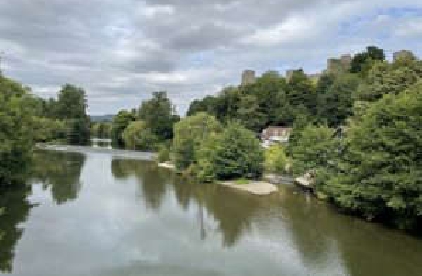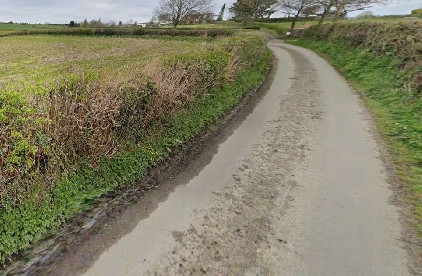
A project which will allow environmental experts to monitor bacteria at a bathing spot in the River Severn catchment on a daily basis has won funds from the River Severn Partnership Advanced Wireless Innovation Region.
The RSPAWIR has approved an application from the Environment Agency to lease new sensors which will be fitted at a popular swimming spot in Ludlow to monitor bacteria including E.coli.
The £25,000 trial will mean the Environment Agency can gather daily readings remotely, rather than relying on a manual reading being made once a week.
The sensors will also build in rainfall data and other scientific measurements to assist understanding of its effects on increased bacteria levels.
Matt Smith, RSPAWIR programme manager, said: “This is a very welcome project which has a multitude of environmental and social benefits.
“Scientifically it will help build a better picture of the levels and types of bacteria in the watercourse, their potential sources, how they are affected by the environment and how they affect the ecology.
“Socially it will be much better for people who enjoy cold water swimming to be able to choose the safest times and places to participate.”
A spokesperson for the Environment Agency said: “This proof-of-concept trial seeks to increase knowledge of the bacteriological levels in the River Teme, through the daily collection of remotely triggered bacteriological data at the Ludlow bathing site.
“As a newly designated bathing site (designated May 2024), there is currently little data available regarding bacteriological concentrations in the river. Therefore, it is difficult to inform recreational river users of the daily water quality.
“The taking of sustained, daily, pre-programmed bacteriological river samples is a first in the UK. Used in combination with rainfall, river flow data and continuous water chemistry data, this project will provide a unique insight for recreational river users at Ludlow bathing site to better evaluate personal river use. It will also allow us to better understand and identify the sources of pollution and inform our ability to influence and improve the health of the river.”
Ian Nellins, Shropshire Council deputy leader and cabinet member for the environment and transport, added: “As the popularity of wild swimming grows this is a very welcome trial and will help people make informed decisions about where and when the enjoy the water. It is an excellent example of using technology to support data gathering which can then be used to influence wider decision making.”
The project also has the backing of the EA National Water Quality Instrumentation Service.


 Revealed: The main roads in Herefordshire prioritised for repairs
Revealed: The main roads in Herefordshire prioritised for repairs
 Villagers fustrated over lack of road repairs
Villagers fustrated over lack of road repairs
 New Food and Drink group launched at online event
New Food and Drink group launched at online event
